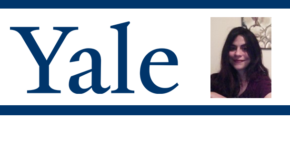 The COVID lockdowns may have had unintended benefits.
The COVID lockdowns may have had unintended benefits.
Dawn Brancati, senior lecturer in the political science department at Yale University, looks into one.
Senior Lecturer in the political science department at Yale University, who studies peacebuilding, especially in relation to democracy and democratic institutions.
Locking Down ISIS
At the outset of the COVID-19 pandemic, non-state actors, such as the Islamic State of Iraq and Syria (ISIS), threatened to use the pandemic to advance their goals. ISIS even referred to COVID-19 as a “soldier of Allah” in its propaganda.
And, in some ways, the pandemic did present an opportunity to armed groups like ISIS. It strained countries’ budgets and placed additional burdens on their security forces in some cases. Where public health services were inadequate, militaries sometimes found themselves stepping in to provide public health-related services. As a result, the pandemic threatened to divert resources away from fighting extremism.
In our research, however, my colleagues and I found, that the pandemic did not generally increase violence by ISIS in the Middle East and North Africa. Instead, we found that the lockdown measures – that is, the curfews and travel bans that countries adopted to stop the spread of the COVID-19 virus — actually reduced the violence that ISIS committed in Egypt, Iraq, and Syria when they were in place. The effects were especially large in densely populated areas and areas outside ISIS’s base of operations.
We believe that the lockdowns most likely decreased the number of attacks ISIS committed by reducing the number of high-value civilian targets ISIS had available to it and eliminating the physical cover that ISIS relies on for its operations. The lockdowns also lessened the amount of revenue that ISIS could generate, but ISIS has large financial reserves and the lockdowns were not in place long enough to significantly deplete its reserves.
Although we only studied ISIS in our research, government-imposed lockdowns likely affected other armed groups around the world in similar ways.
Read More:
[Cambridge University Press] – Locking Down Violence: The COVID-19 Pandemic’s Impact on Non-State Actor Violence


Comments
3 responses to “Dawn Brancati, Yale University – Locking Down ISIS”